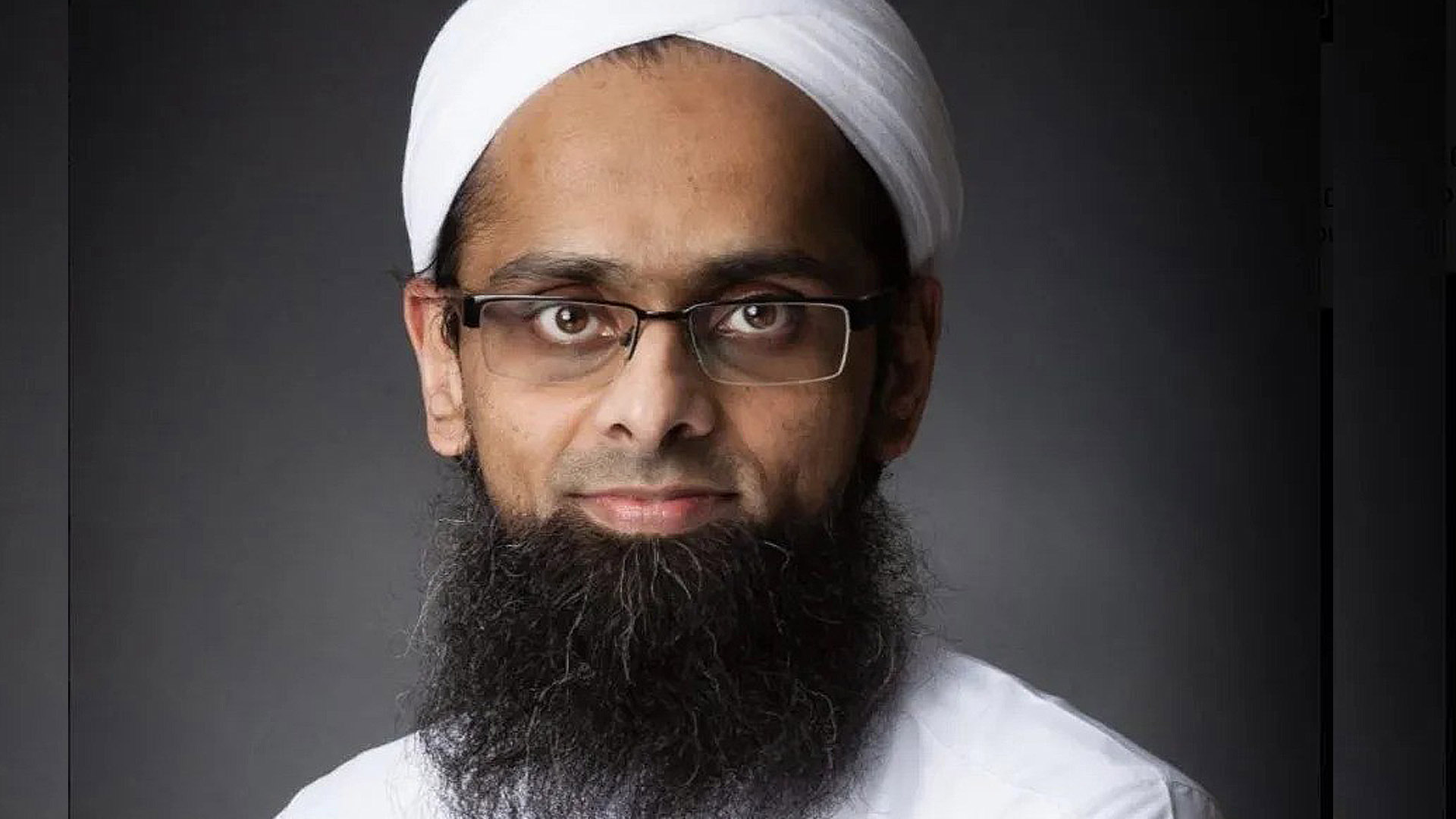
Nadine Osman
An imam has resigned from his post as a college chaplain after Blackburn College revoked permission for students and staff to hold a “Palestine Awareness Day” just days before the event.
The event, which was to be organised by University Centre students, was set to feature a well-known Palestinian speaker advocating for the humanitarian crisis in Gaza. The abrupt cancellation has led to widespread disillusionment among students and staff.
Imam Saleem Seedat, who had served the college for 13 years, expressed his frustration publicly in a resignation letter dated February 19. He explained that during the week before the Christmas holidays in December 2024, he was informed that the planned event had been rejected, despite having been approved months earlier. The event, which would have featured the Palestinian speaker, was part of an ongoing effort to raise awareness about the situation in Gaza. The speaker, known for her advocacy, was expected to share her lived experiences, having spoken at multiple national events across the UK.
The decision to cancel the event came as a surprise, particularly since Imam Seedat had been asked months earlier to support the students in organizing the event. He also provided guidance to the college on how best to address the complex issues surrounding the conflict in Gaza. Imam Seedat, who has significant experience in interfaith work and as a representative of the Muslim community, was perplexed by the sudden reversal of the event’s approval, particularly as he had been engaged in training staff on these very issues in the previous academic year.
In his resignation letter, Imam Seedat criticized the lack of a clear explanation for the college’s decision, questioning how it could avoid indirect discrimination under the Equality Act 2010. He also raised concerns about the college’s adherence to the Higher Education (Freedom of Speech) Act 2023. Imam Seedat said he “escalated the matter to the Lancashire Council of Mosques (LCM)” in a bid to seek clarity.
Imam Seedat’s resignation letter reveals that upon informing the college principal about his escalation to LCM, he was met with a dismissive response: “I run this institution. We do education here. I don’t need to justify my decisions.” This statement set the tone for subsequent interactions. Attempts were made to arrange a meeting between the principal and LCM, but it was made clear to Imam Seedat that the event would not go ahead, regardless of the proposed discussions.
As the new year began, Imam Seedat noticed a shift in the management’s attitude towards him. He was subjected to a formal investigation, which accused him of “serious insubordination” based on his manner during private conversations with management. Imam Seedat pointed out that these allegations were grounded in challenging conversations related to unrelated issues and that the investigation seemed to ignore the broader context of his service.
In his letter, Imam Seedat noted the irony of the situation, stating that his role in challenging discrimination and supporting students had been framed as insubordination, which he viewed as a form of tone policing. He also expressed concerns about potential victimization, highlighting that fulfilling his duty of care to students should not be grounds for such treatment.
On February 19, Imam Seedat submitted his resignation, and the investigation into his conduct was subsequently retracted. He completed his notice period, marking the end of his 13-year tenure at the college.
Imam Seedat emphasized that his resignation was not just a personal matter but a reflection of a broader breakdown between the college and the local Muslim community. He pointed out that the constituency in which the college operates had recently elected an independent MP, Adnan Hussain, largely due to his stance on the Gaza conflict. Imam Seedat argued that the decision to cancel the event lacked democratic legitimacy, as it ignored the concerns of the local electorate.
Furthermore, Imam Seedat criticised the college’s management, accusing them of failing to provide appropriate leadership and support for minority communities. He cited the recent election of an MP who was largely elected due to his position on Gaza as evidence of the broader political context in which the college operates. Imam Seedat highlighted that such a decision demonstrated a “collective failure” to provide equitable and professional services to people based on their race, religion, or culture.
Imam Seedat’s resignation letter also revealed a deep concern for the future of inclusivity at Blackburn College. He expressed that his departure would have a detrimental impact on the balance of community relations at the college, noting that students and staff alike had voiced their concerns about the absence of his specialist input.
The resignation has sparked broader conversations about the role of universities and colleges in fostering open dialogue on global issues, particularly in the context of political and humanitarian crises. Imam Seedat’s decision has drawn support from various quarters, especially among those advocating for the right to freely discuss the situation in Gaza.
In response to the controversy, Blackburn College defended its decision, citing government guidelines that prohibit political or exclusionary events. A college spokesperson stated, “Individuals from different cultures, perspectives, and experiences are at the heart of Blackburn College. We are guided by our values in everything we do, and we recognise that being a diverse and inclusive college helps us fulfil our responsibility to transform the lives of our students through education.”
The spokesperson further explained that, in line with Department for Education guidance and the college’s own Equity, Diversity, and Inclusion policy, Blackburn College could not host political events, emphasizing the college’s commitment to creating a safe and inclusive environment for all students.
Imam Seedat’s resignation has sparked criticism from human rights lawyers and advocates for Palestinian rights. Attiq Malik, a prominent human rights lawyer, condemned the decision, calling it an attempt to suppress discussion of the Gaza crisis. Malik argued that such actions undermine academic freedom and the right to openly discuss pressing global issues.
“Denying a platform to discuss Gaza is a violation of the fundamental human right to free speech,” Malik stated. He further questioned how the college would have reacted during other historical injustices, such as apartheid or slavery, and emphasised the importance of universities as spaces for critical debate on global matters.
Blackburn College did not respond to The Muslim News’ request for clarification on several key points, including the rationale behind the last-minute cancellation of the event, how this decision aligns with the college’s commitments to freedom of speech and inclusivity, the nature of the investigation into Imam Seedat, the reasons behind its retraction, and the steps the college is taking to rebuild trust with affected students and staff.
Photo credit: Google/FB
READ MORE GAZA SIEGE SPECIAL COVERAGE
Yemen ignites: Another warfront opens after Gaza as US strikes deepen conflict
Columbia protest leader Mahmoud Khalil arrested in Trump crackdown on campus activism
BBC faces backlash from media figures over Gaza documentary removal


